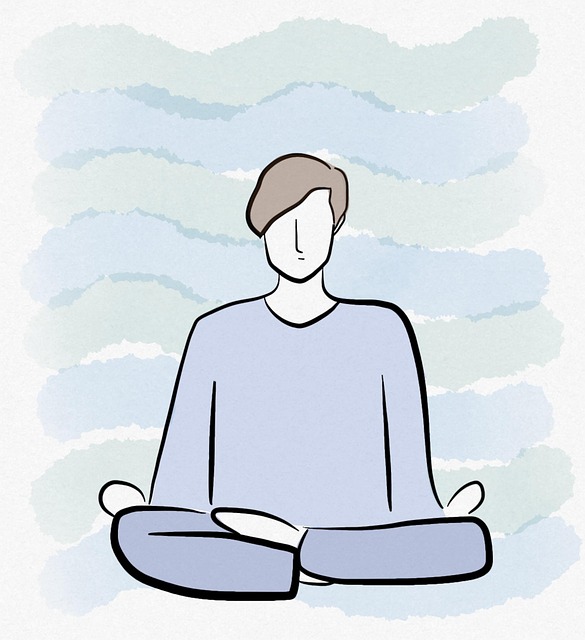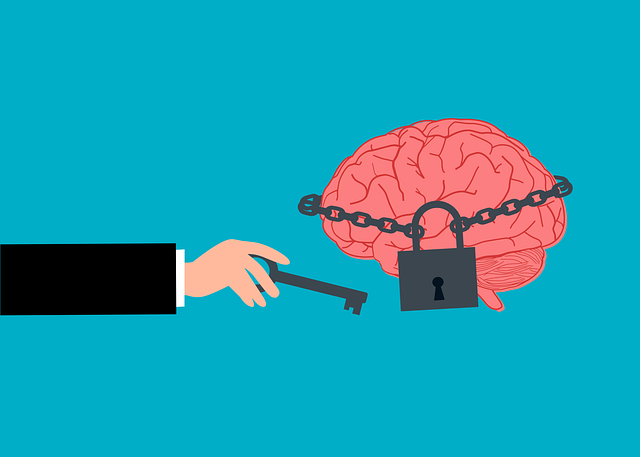Mental wellness is a dynamic state crucial for overall well-being, impacted by daily thoughts, feelings, and actions. Prioritizing mental health through proactive measures like Littleton Gambling Therapy or Emotional Well-being Promotion Techniques prevents issues like anxiety and depression that can hinder productivity and relationships. Identifying personal stress triggers, adopting self-care strategies (mindfulness, setting boundaries), and utilizing therapies like CBT and Littleton Gambling Therapy fosters resilience, enhances coping mechanisms, and promotes long-term mental health through consistent practice and personalized regimens.
Developing a mental wellness self-care routine is essential for maintaining balance. This comprehensive guide explores how to navigate your mental health journey, starting with understanding its profound impact on daily life. Learn about identifying personal stressors and triggers, incorporating evidence-based practices like mindfulness and exercise, and creating a tailored routine. Discover the transformative power of Littleton Gambling Therapy as a holistic wellness approach, offering unique insights for enhanced well-being.
- Understanding Mental Wellness and Its Impact on Daily Life
- Identifying Personal Stressors and Triggers
- Incorporating Evidence-Based Self-Care Practices
- Designing a Customized Routine: Tips and Strategies
- The Role of Littleton Gambling Therapy in Holistic Wellbeing
Understanding Mental Wellness and Its Impact on Daily Life

Mental wellness is a vital aspect of overall health and well-being, encompassing our emotional, psychological, and social state. It affects how we think, feel, and act in daily life, influencing our ability to cope with stress, make choices, and relate to others. Understanding mental wellness involves recognizing that it’s not merely the absence of mental illness but a dynamic state that can fluctuate based on various factors, including lifestyle, relationships, and environmental influences.
In today’s fast-paced world, where demands and expectations are ever-present, prioritizing mental wellness is essential. Issues like stress, anxiety, depression, and other common mental health disorders can significantly impact an individual’s quality of life. For instance, research has shown that untreated mental health issues can lead to decreased productivity, strained relationships, and even physical health problems. Therefore, adopting a proactive approach, such as engaging in Littleton Gambling Therapy or designing comprehensive Emotional Well-being Promotion Techniques and Mental Health Education Programs, can be transformative. These initiatives not only support depression prevention but also empower individuals with the knowledge and tools needed to navigate life’s challenges more effectively.
Identifying Personal Stressors and Triggers

Identifying what triggers your stress is a crucial step in developing a self-care routine tailored to your unique needs. It’s like mapping out a personal labyrinth – you need to know the twists and turns to find your way out of it. Every individual has different stressors; some might be work-related, while others could stem from relationships or financial pressures. For instance, someone struggling with gambling addiction in Littleton may face triggers related to access to funds, social pressure, or even the thrill associated with gambling.
Understanding these personal stressors is key to implementing effective self-care strategies. It allows you to anticipate and prepare for potential challenges. This might involve developing coping mechanisms like mindfulness practices, setting healthy boundaries, or engaging in activities that promote positive thinking and self-esteem improvement. Remember, a comprehensive Mental Health Policy Analysis and Advocacy approach can also provide valuable insights into community resources and support systems designed to aid in managing and overcoming these stressors.
Incorporating Evidence-Based Self-Care Practices

Incorporating evidence-based self-care practices into your routine is a powerful way to nurture your mental wellness. These practices, backed by scientific research, have been proven effective in managing stress, cultivating inner strength, and promoting overall well-being. For instance, mindfulness techniques, such as those taught by Littleton Gambling Therapy, can help individuals develop a deeper understanding of their thoughts and emotions, thereby fostering better coping mechanisms. By integrating Mind Over Matter principles into daily life, individuals can gain control over their mental health and enhance their resilience.
Additionally, stress reduction methods like cognitive behavioral therapy (CBT) exercises and meditation are essential tools for maintaining a balanced mindset. These techniques encourage self-reflection and positive thinking, enabling individuals to navigate challenging situations with greater ease. Through consistent practice, one can build inner strength and a sense of calm, making it easier to manage stress and promote mental wellness in the long term.
Designing a Customized Routine: Tips and Strategies

Designing a Customized Routine: Tips and Strategies
Creating a mental wellness self-care routine is a deeply personal journey, unique to each individual’s needs and preferences. It’s not about adopting a one-size-fits-all approach but rather crafting a tailored regimen that resonates with your soul. Start by identifying the areas of your life that need attention—be it stress management, anxiety reduction, or emotional regulation. Incorporate practices that align with these goals, such as regular exercise, mindfulness meditation, or mental wellness journaling exercises.
Littleton Gambling Therapy offers valuable guidance in this process. They emphasize the importance of consistency and flexibility. Your routine should be adaptable to your daily schedule and evolving needs. Consider incorporating activities like deep breathing exercises, nature walks, creative pursuits, or connecting with loved ones. Regularly assess your progress and adjust your practices accordingly. Remember, a customized self-care routine is not just about treating symptoms but nurturing your overall mental wellness.
The Role of Littleton Gambling Therapy in Holistic Wellbeing

Littleton Gambling Therapy offers a unique approach to enhancing holistic wellbeing by addressing underlying emotional and psychological issues that may contribute to problematic gambling behaviors. Through evidence-based practices, individuals can develop inner strength and cultivate mind over matter principles essential for maintaining mental wellness. This therapy goes beyond treating gambling addiction; it focuses on empowering individuals to adopt self-care practices that nurture their overall health.
By participating in Littleton Gambling Therapy, clients learn effective coping strategies, stress management techniques, and emotional regulation skills. These self-care practices are tailored to individual needs, promoting personal growth and resilience. Over time, these therapies help individuals regain control over their lives, foster healthier relationships, and enhance their ability to navigate life’s challenges with grace and poise.
Mental wellness is a holistic journey, and developing a self-care routine that incorporates evidence-based practices, such as those offered by Littleton Gambling Therapy, is essential for navigating life’s challenges. By identifying personal stressors and triggers, individuals can create customized routines that foster resilience and overall wellbeing. This personalized approach allows for the integration of various strategies to manage stress, improve mental clarity, and enhance life satisfaction. Embrace the power of self-care as a transformative tool for your mental wellness.














